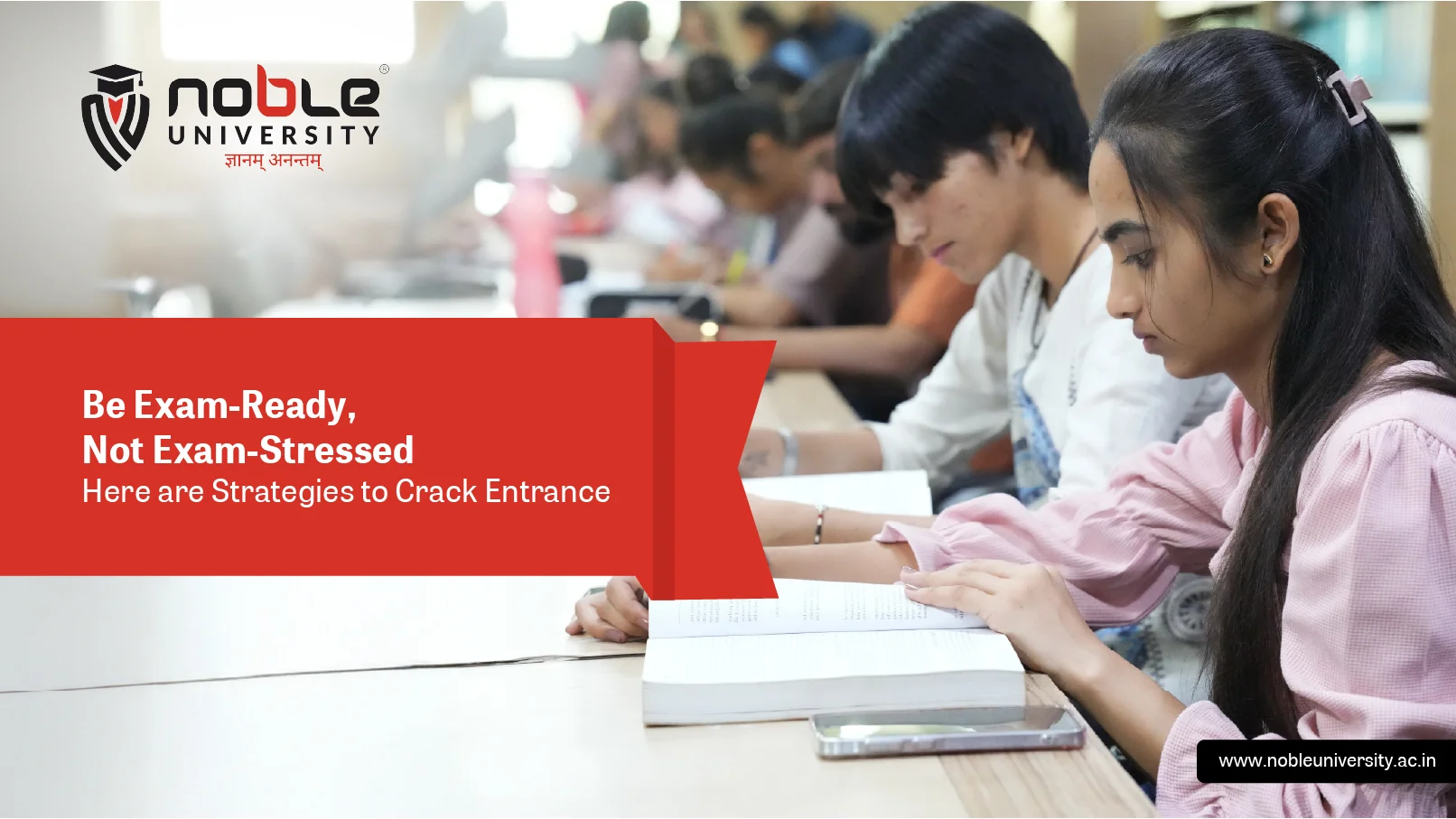
How to Prepare for Competitive Courses After 12th
The end of Class 12 is not just the closing of a chapter; it’s the beginning of a race where every student is aiming for a place that defines their next few years. Whether it’s engineering, medicine, management, law, or design, competitive exams after 12th often decide who gets to step into the college or career of their dreams. But with so many paths to choose from, the question arises: how should you prepare for competitive exams after 12th, and which course should you aim for?
The answer lies in strategy, not stress. Each exam demands a different mindset, and the right preparation starts with understanding what truly suits your interests and strengths.
Engineering Aspirants: Cracking JEE and Beyond
For lakhs of science students across India, the Joint Entrance Examination (JEE) is the ultimate test. It measures not only your understanding of Physics, Chemistry, and Mathematics, but also your patience and time management.
The best strategy for competitive tests after 12th in engineering involves strong conceptual clarity, consistent mock tests, and a disciplined revision plan. Make sure to balance board preparation with JEE-specific practice since both overlap heavily in the syllabus.

State-Level Exams Like GUJCET and MHT-CET
While national exams like JEE Main and Advanced dominate headlines, state-level exams such as GUJCET (Gujarat Common Entrance Test) open excellent opportunities closer to home. These tests often follow the NCERT pattern, making them ideal for students who want to stay within their state yet access quality engineering programs.
If you’re exploring top engineering colleges in Gujarat, Noble University offers a wide range of specialised Bachelor’s programs in Engineering designed to prepare students for future-ready careers in technology, innovation, and research.
Medical Aspirants: NEET and Alternative Paths
The National Eligibility cum Entrance Test (NEET) is the gateway to India’s medical colleges, testing students on Biology, Physics, and Chemistry. Cracking NEET requires a calm, consistent approach because here, conceptual understanding matters more than rote memorisation. Daily revision, solving past-year papers, and practising mock tests build the kind of confidence NEET demands.
Alternative Healthcare Courses
Not everyone pursuing a career in healthcare wants to become a doctor. Some find their calling in Ayurveda, Physiotherapy, Nursing, or Biomedical Sciences. Programs like the Bachelor of Ayurvedic Medicine and Surgery (BAMS) at Noble University combine traditional knowledge with modern medical insights, making them ideal for students who want to explore holistic healing while earning a respected degree.
Commerce & Management Entrances: The Numbers Game
For students drawn to strategy, finance, and entrepreneurship, commerce and management entrance exams open some of the most dynamic career routes. Exams such as CUET, IPMAT, NPAT, and SET test logical reasoning, data interpretation, and language comprehension skills that matter far beyond the classroom.
Balancing Boards and Management Prep
Start early, even if it’s just an hour a day of focused reasoning or reading practice. Learn to analyse mock results rather than chasing marks. For those wondering how to prepare for entrance exams after the 12th commerce stream, the secret is integrating test prep into daily study habits rather than treating it as something separate.

Law Aspirants: Mastering CLAT and AILET
A good lawyer is first a good reader and thinker. The Common Law Admission Test (CLAT) and AILET are designed to test comprehension, analytical reasoning, and awareness of current events.
Preparation for these exams isn’t about memorising legal sections; it’s about developing the ability to think critically and articulate ideas logically. Regular reading of editorials and solving mock papers under timed conditions can make a significant difference.
Arts & Humanities Entrances: CUET and Beyond
For Arts students, the Common University Entrance Test (CUET) has become the primary route to leading central and state universities across India. It evaluates students on language proficiency, domain-specific subjects, and general aptitude, giving them access to diverse programs in humanities, social sciences, psychology, and fine arts.
Preparing for CUET after 12th requires a smart mix of NCERT-based revision and practice of reasoning and current affairs. Students aiming for universities with strong liberal arts or interdisciplinary programs should focus on consistent reading habits and building conceptual depth in their chosen subjects.
For students seeking creative and future-ready options, Noble University offers diverse programs for 12th Arts students to build strong foundations.
Creative and Design Entrances: Where Imagination Meets Aptitude
For the creatively inclined, exams like NID, NIFT, UCEED, and NATA open paths into fashion, product design, and architecture. These tests don’t just measure knowledge; they assess originality, imagination, and design sense.
Creative Preparation requires an active mind
Build a habit of sketching daily, observing design around you, and revisiting your portfolio with feedback from mentors. Visualisation exercises and creative brainstorming are key for exams like NATA, which blend technical precision with artistic insight.
Common Preparation Strategies That Work for All Exams
No matter which exam you’re aiming for, the right approach can make all the difference. While every competitive course has its own syllabus and format, the foundation of effective preparation remains the same. It’s about studying smart, revising regularly, and using the right tools to stay ahead of the curve.
- Plan, Don’t Panic:
Start with a clear timetable that divides your syllabus into smaller, achievable goals for each week. This prevents last-minute chaos and helps you maintain a steady pace. Remember, consistency beats intensity. Studying two hours daily is better than pulling all-nighters before the exam. - Revise Smartly:
Revising isn’t just about rereading; it’s about reinforcing what you’ve learned. Summarise topics in your own words, create flashcards, and keep short notes handy for quick reviews. Regular revision ensures long-term retention and reduces stress before the exam. - Practice Tests Regularly:
Mock tests are the bridge between preparation and performance. They not only improve your speed and accuracy but also help you identify weak areas before the real test. Simulate exam conditions to build focus and confidence over time. - Leverage Technology:
Use digital tools and AI-powered study platforms to make learning interactive and adaptive. These tools can analyse your progress, suggest targeted improvements, and save hours of manual effort. Embracing technology ensures you study smarter, not harder.Ayurveda in the Modern World

Build Your Future with Noble University
At Noble University, preparation is seen as more than exam strategy; it’s about helping students find the right direction for their potential. Whether your goal is engineering, medicine, law, or technology-driven innovation, Noble offers a learning environment that combines guidance, resources, and opportunity.
Visit our Admission Offices to begin your academic journey with mentors who believe in your future.
FAQS
An ideal study plan balances daily study hours across subjects, with dedicated time for revision and mock tests each week. Set realistic goals and focus on consistency rather than cramming long hours at once.
Students should aim for at least 10–15 full-length mock tests before the final exam. The key is to analyse each test thoroughly to understand mistakes and improve accuracy.
Stick to NCERT textbooks for basics, then move to exam-specific guides like Arihant, MTG, or Pearson. Complement your preparation with reliable online platforms offering topic-wise quizzes, mock tests, and AI-based feedback.
It depends on your learning style. Coaching provides structure and expert guidance, while self-study offers flexibility and independence. Many students choose a hybrid approach, using online resources alongside self-paced study.
Align your board and entrance exam syllabus they often overlap in key subjects like Physics, Chemistry, and Math. Prioritise board exams first, then gradually shift focus to application-based entrance questions.
Neglecting regular revision, poor time management, and ignoring weaker subjects are common pitfalls. Many also focus too much on quantity over quality, leading to burnout before the exam.
They’re absolutely crucial that your mind performs best when your body is well-rested and nourished. Regular breaks, light exercise, and enough sleep help maintain focus and long-term motivation.



